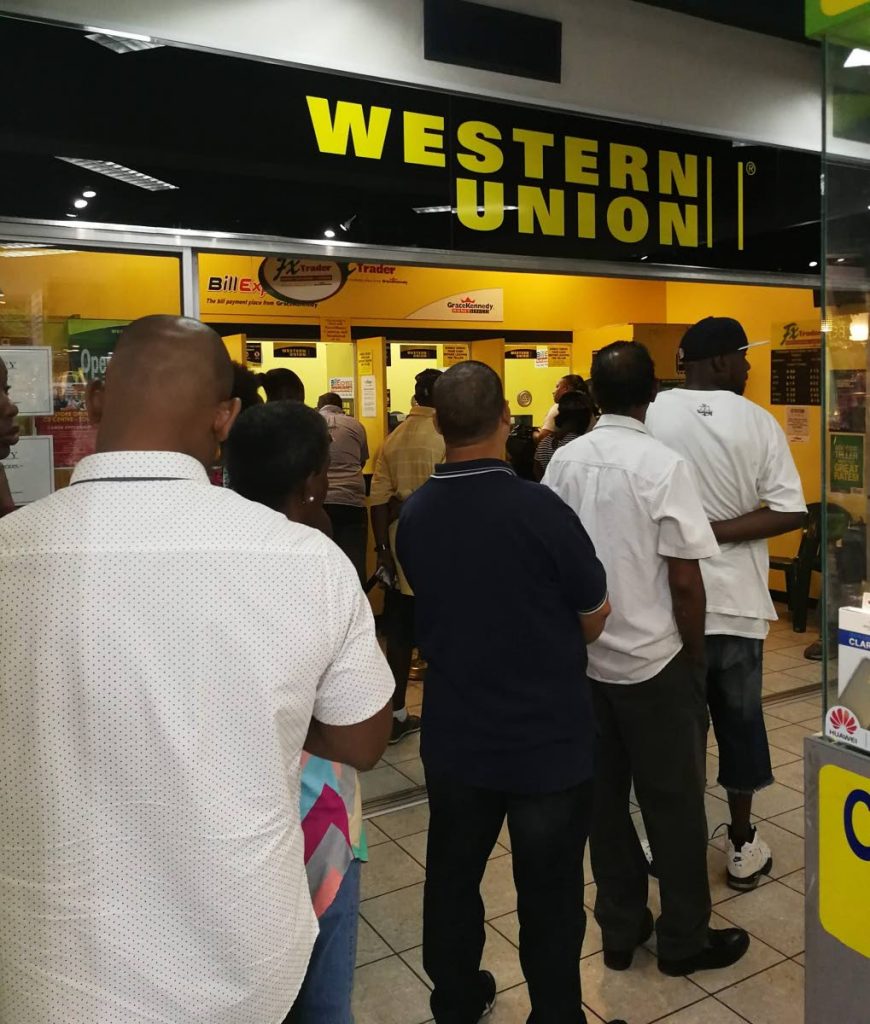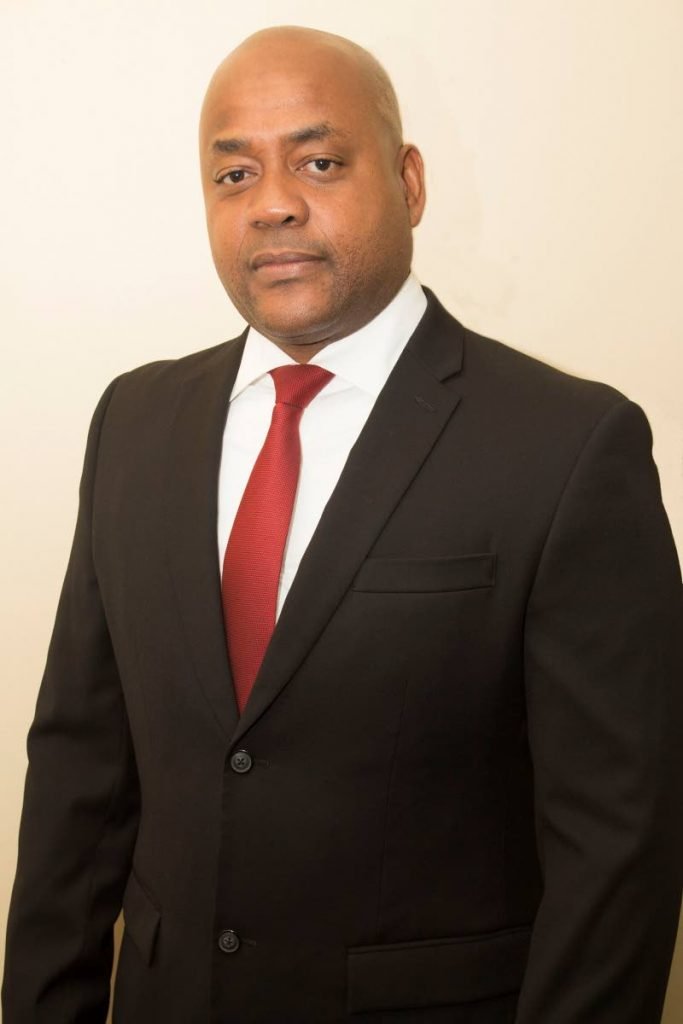On the forex trade

In TT, most people associate GraceKennedy with its food and beverage lines – chief among them Grace corned beef – but the Jamaica-based group of companies also provides financial services.
GraceKennedy (TT) Ltd – the registered name of GraceKennedy Money Services (GKMS) in TT – is a subsidiary of GraceKennedy Group. GKMS is the company's brand name.
GraceKennedy (TT) Ltd is responsible for three brands:
* Western Union, through which you can send and receive money;
* Bill Express, a bill payment service; and
* FX Trader, through which all foreign currency transactions are handled.
Business Day recently sat down with GraceKennedy (TT) Ltd's country manager Donald Edwards to find out more about how FX Trader has been working to meet customers' demand for the still-limited supplies of foreign exchange (forex).
We also spoke – via phone from Jamaica – with GKMS Group of Companies' communications and sponsorship manager, Yolande Gyles Levy.

Seated in the conference room at GraceKennedy (TT) Ltd's offices in the CIC Building on upper Frederick Street, Port of Spain, Edwards said FX Trader buys and sells six currencies – US dollar, Euro, Canadian dollar, Pound Sterling, Eastern Caribbean dollar (XCD) and the Barbados dollar.
"The USD, as you would expect, is the most popular – it accounts for 90 to 95 per cent of demand. It's been consistently like that and we believe that partly a function of where someone is going as a traveller. For example, we tend to get a demand for XCD when someone is going to that part of the region and it's usually for a smaller amount compared to when people travel to the US."
FX Trader is a regulated entity under the jurisdiction of the Central Bank – it has a bureau de change licence. There are more than 50 Western Union locations in TT, 23 of which provide the FX Trader service.
"Western Union was our (only) service for almost 25 years. Subsequently, FX Trader was launched in TT around 1998 – it started about 1996 in Jamaica – while Bill Express was launched here in about 2003."
Adding to Edwards' point, Gyles Levy gave an overview of GKMS' regional presence via Western Union.
"GKMS is the agent for Western Union in 12 Caribbean territories – we added our 12th, the Bahamas, last year. Unlike the other 11 territories where we operate, we don't have a sole agent relationship with Western Union – there are other agents in the Bahamas market. Prior to GKMS operating in the region, other entities offered the Western Union service but starting in Jamaica 28 years ago, we are now their sole agent in 12 territories."
Gyles Levy pointed out that unlike Western Union, FX Trader and Bill Express are both services launched and operated by GKMS.
Western Union and FX Trader offer different services, as explained by Edwards.
"Western Union offers a patented service that allows you to use a computer in one location to send money to someone in another place/country and it 'appears' right away for pick up. Customers pay us to move that money. They can send foreign or local currency and the recipient is paid in their local currency.
"FX Trader on the other hand, allows people to do over-the-counter forex transactions. For example, someone comes in wanting to buy US$100 and someone else comes in wanting to change US$100 to TT dollars. That's the bureau de change service we provide."
Edwards pointed out that bureaux de change, commonly referred to as cambios, do not receive forex from the Central Bank.
"Only commercial banks get that. Hence the reason we say we deal in small amounts – when people who come to the teller to change money – and as we get that foreign currency, we make it available for sale."
Comparing US dollar demand for the period July-August 2018 to the same period over the three years, Edwards told Business Day, "The market has significantly changed from 2015 onward but the impact of the US dollar (shortage) would have really started around 2017. We don't have confirmation about what people do or don't do but what we do know is that the volumes have definitely fallen off – in terms of the amount of forex coming into our FX Trader teller windows."
Edwards said the average size of those transactions would have also decreased during this time.
"Let's say for instance, an average transaction for foreign currency in 2015 – when there was ease in the market – US$200 was being converted to TT but in 2017/2018, the average dropped to about US$80. People still want forex but there's been a volume contraction in terms of the number of people coming in and how much is being bought/sold."
While he couldn't say, definitively, why this is so, Edwards thinks people are now purchasing forex based on their needs.
"It's not as if people are just anxiously buying up all the US that's available. So it seems to be an economic statement – it's our speculation that the TT economy's contraction also contributed to less demand. This is something we've seen happening over the years."
FX Trader introduced a funds reservation system to TT in 2010, having first run a successful pilot programme in Jamaica.
Given the ongoing forex shortages, this system has proven quite handy, Edwards noted, for customers who need a certain amount of forex and are willing to go to a FX Trader location.
"Once a customer contacts our call centre, asking for x amount of forex by a certain date, we make queries on their behalf then contact them to say which location has the amount – or as much as possible of the amount – of forex they've requested."
The money is, however, only held in reservation "for two to three hours. If the customer doesn't reach the branch within that time, the reservation expires and the money goes back into the system," Edwards told Business Day.

Comments
"On the forex trade"